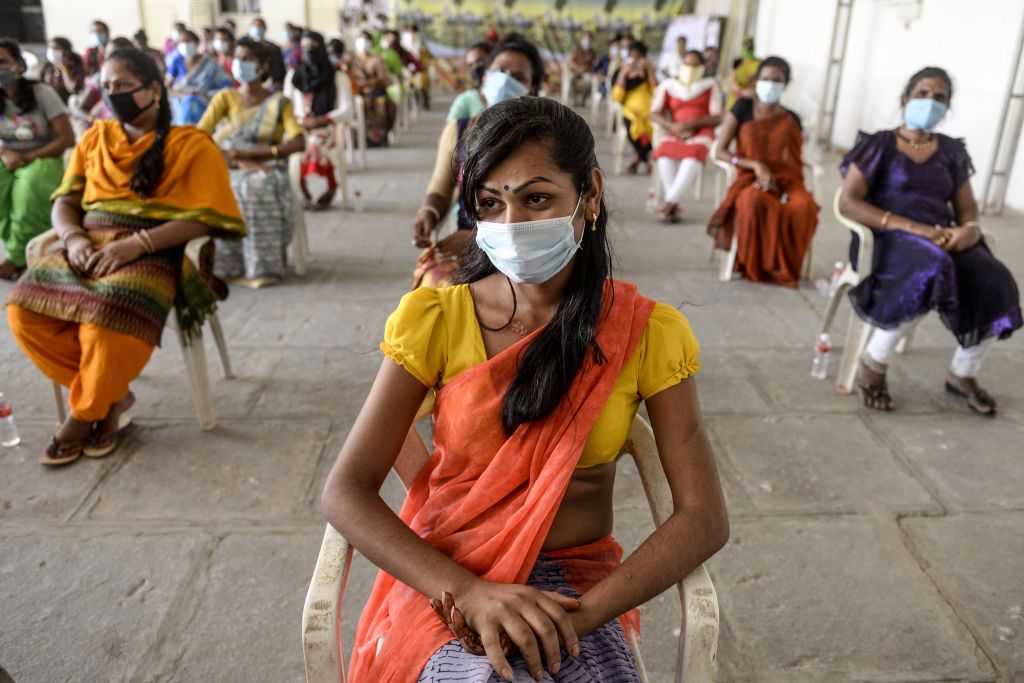As the COVID-19 pandemic continues to batter India, states have imposed lockdown restrictions and curfews in an attempt to reduce the spread of the deadly virus. For transgender people across the country, the rules can mean being trapped in hostile homes and without access to the community, medical care and mental-health services that they depend on for survival.
“It is like I am being strangled,” says Lulu, 21, who uses one name. Lulu is from the state of Manipur and depends on medication to treat HIV. “Being cut off from my safe spaces makes me feel alone, anxious and insecure.”
Agastya, from the state of Gujarat, also says their mental health has suffered during the pandemic.
“I can’t visit the places that I call my safe space and my friends. They were the only support I had,” says Agastya, who asked to use a pseudonym because of concern about their safety. “The pandemic has definitely made me realize that you take everything for granted until it’s taken away.”
Sumi Das of Moitrisanjog Society works with the transgender community in Coochbehar and Alipurduar, West Bengal. She says that the second wave of the virus battering the country has amplified many problems facing trans people. “Transphobic vitriol within people has not reduced despite the pandemic,” she says.
Even without a pandemic raging, trans people have a difficult time accessing social services and government aid in India. Many official forms do not acknowledge the existence of transgender people, which is a barrier to receiving aid and there is a complicated and process to achieve legal gender recognition, as outlined in the 2019 Transgender Persons (Protection of Rights) Bill, that requires trans people to register with the government and show proof of surgery.
“We are being turned away from everywhere, even vaccination centers,” says Das, who also worries about people with HIV not being able to access their medication and trans people who are employed as sex workers losing their source of income. “The future is bleak,” Das says.


 Sara Bardhan
Sara Bardhan
